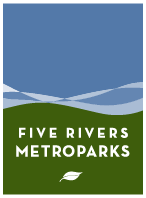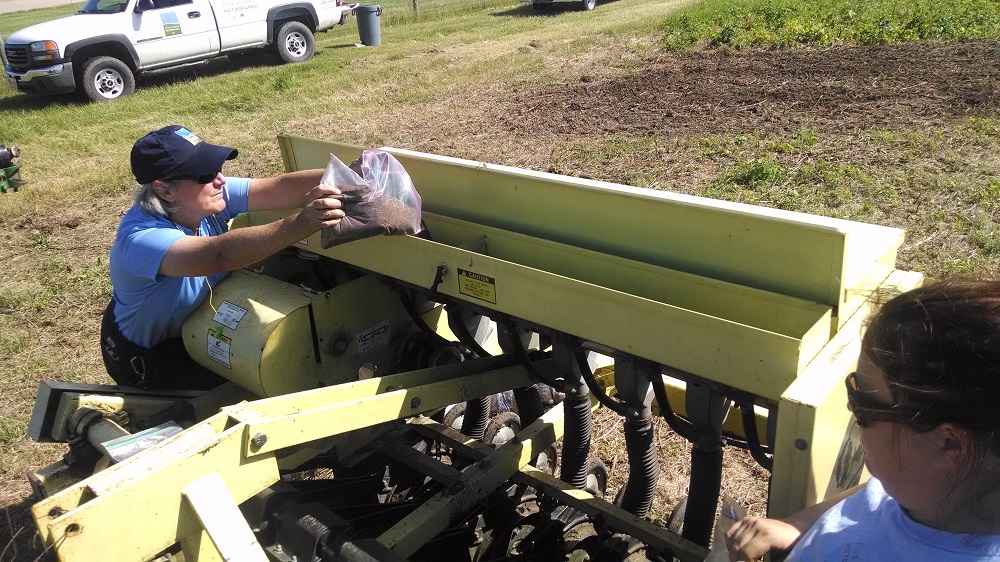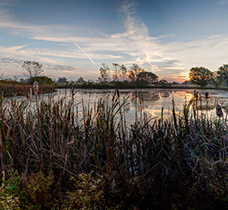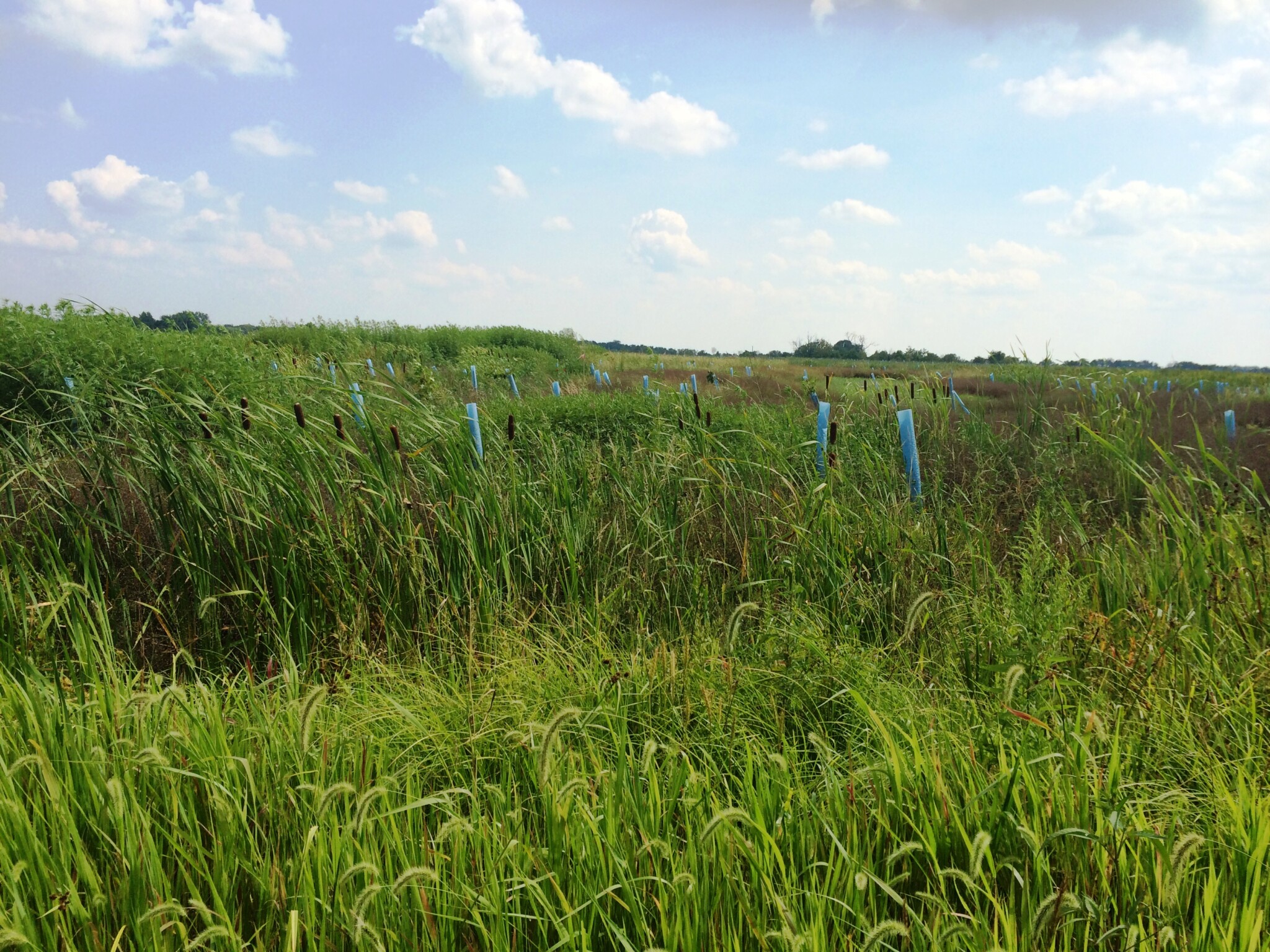Published November 2, 2023
Five Rivers MetroParks awarded $1.45 million for conservation work at two natural areas
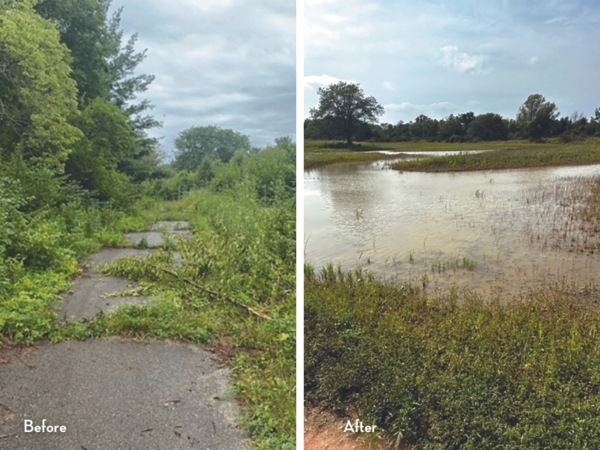
Grant funds will support MetroParks’ mission to protect the region’s natural heritage.
A new federal grant program will support Five Rivers MetroParks’ conservation work at Possum Creek MetroPark and Spring Run Conservation Area.
The Urban and Community Forestry Program has awarded MetroParks a $1.45 million grant to fund project activities at these natural areas in west Dayton and Trotwood. The program is funded by the U.S. Department of Agriculture’s Forest Service. It selected 385 grant proposals from entities working to increase equitable access to trees and green spaces — such as Five Rivers MetroParks, which received one of 19 grants awarded in Ohio.
The grant is part of the Inflation Reduction Act and is investing more than $1 billion into communities in all 50 states, the District of Columbia, several U.S. Territories and Tribal Nations – impacting more than 84% of all Americans. In addition, 100% of this funding nationwide is being invested in disadvantaged communities, defined as those that are marginalized, underserved and overburdened by pollution.
“These federal investments support the very work we do at Five Rivers MetroParks, such as climate change mitigation, remediation and reduction of legacy pollution, and the development of critical clean water and energy infrastructure,” MetroParks CEO Karen Hesser said.
The Urban and Community Forestry Program aims to increase biodiversity and protect land from invasive species and climate change while enhancing the quality of urban life, wildlife habitat, recreation and other ecosystem services.
“This grant presented MetroParks with an opportunity to fund substantial habitat restoration during the next several years.” Grace Dietsch, MetroParks’ interim director of conservation, said. “This work will have lasting impacts on the ecological health of these natural areas, as well as the surrounding communities, which is an incredible opportunity.”
It also aims to increase public awareness of the importance of urban forests. Studies show communities with access to trees and greenspaces are associated with:
- improved health outcomes
- reduced crime
- increased food security
- lower average temperatures
- an influx of other kinds of investments and new economic opportunities
“Five Rivers MetroParks plays a critical role in addressing forest equity in and around urban areas,” Dietsch said. “We believe everyone should experience the health, economic and climate benefits healthy forests provide, regardless of socioeconomic status.”
MetroParks’ grant-funded work will begin in 2024 and continue through 2028. Success will be measured by monitoring select wildlife populations beginning in the second year. All work will be done at both Possum Creek MetroPark and Spring Run Conservation Area.
The first step will be to conduct plant community and forest inventories to assess a combined 730 acres of land, helping staff better plan and prepare. Other activities include:
- removing invasive plants
- protecting ash trees against Emerald Ash Borer infestation
- purchasing new tools and equipment
- conducting wildlife surveys
- planting native trees and shrubs
Once invasive species have been eradicated by at least 90%, native tree and shrub species will be planted throughout critical forested areas identified in the inventory. Oak species will be prioritized in these plantings, as well as species that will maintain climate resiliency and trees and shrubs that produce edible fruits.
The 556-acre Possum Creek MetroPark is primarily former farmland, and a 1930s historical amusement park dedicated to a World War I military unit was also located at this site. Since it became a MetroPark property in 1976, more than 100 acres of degraded farmland and dumps have been cleared and planted into native Ohio prairie. However, as a result of the previous land uses at Possum Creek, and despite ongoing restoration efforts by MetroParks staff, contractors and volunteers, invasive species remain substantial.
The 550-acre Spring Run Conservation Area is comprised of two land parcels: the 360-acre Great Miami Mitigation Bank, once planned to become a landfill, and the 190-acre former Larch Tree Golf Course. Spring Run is adjacent to the 2,384-acre Sycamore State Park — creating a nearly 3,000-acre natural area for wildlife habitat and open space protection west of Dayton in Montgomery County. This USDA grant will build upon the wetland restoration work recently completed as a result of a $499,500 H2Ohio Grant from Gov. Mike DeWine’s H2Ohio initiative. Read more on MetroParks’ blog.
“This project will help MetroParks protect forest plant communities and sensitive natural habitats as we find balanced ways to provide access and recreational and educational opportunities to the visiting public,” Hesser said. “In addition, this project will support MetroParks’ diversity, equity and inclusion goals by serving underrepresented and disadvantaged communities in the Dayton area.”
ABOUT FIVE RIVERS METROPARKS
Celebrating more than 60 years of preserving green space and natural areas, Five Rivers MetroParks is a nationally renowned park system composed of natural area parks, gardens, high-quality river corridors, urban parks and a network of recreation trails. Five Rivers MetroParks protects the region’s natural heritage and provides outdoor experiences that inspire a personal connection with nature. Educational programs and recreational and volunteer opportunities are offered year-round for all ages. Five Rivers MetroParks is accredited by the Commission for Accreditation of Park and Recreation Agencies. To learn more about Five Rivers MetroParks and its philanthropic Foundation, visit www.metroparks.org or call 937-275-PARK (7275).
FROM THE U.S. DEPARTMENT OF AGRICULTURE
In accordance with federal law and U.S. Department of Agriculture (USDA) civil rights regulations and policies, this institution is prohibited from discriminating on the basis of race, color, national origin, sex, age, disability, and reprisal or retaliation for prior civil rights activity. (Not all prohibited bases apply to all programs.)
Persons with disabilities who require alternative means of communication for program information (e.g., Braille, print, audiotape, American Sign Language, etc.) should contact the responsible state or local agency that administers the program or USDA’s TARGET Center at 202-720-2600 (voice and TTY) or contact USDA through the Federal Relay Service at 800-877-8339. Additionally, program information is available in languages other than English.
